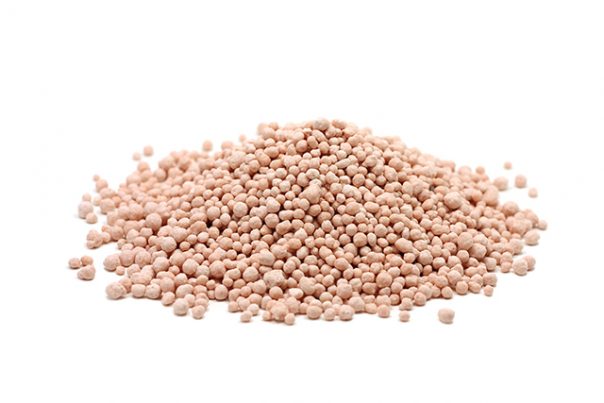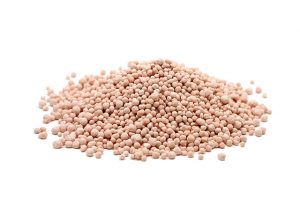
Potassium nitrate sources, health risks
Saturday, October 07, 2017 by Jhoanna Robinson
http://www.naturalpedia.com/potassium-nitrate-sources-health-risks.html

Potassium nitrate is a white- to gray-colored, water-soluble crystalline solid. It is a noncombustible substance, but can increase the burning capacity of combustible materials. Be careful however, for if potassium nitrate is added to a combustible material and fire is involved in the mixture, an explosion can very well happen.
Potassium nitrate is produced commercially in the United States via the reaction between potassium chloride and nitric acid at elevated temperatures.
Potassium nitrate finds its use in explosives (two percent), fertilizers (86 percent), heat transfer salts (six percent), and glass and ceramics (four percent). Toothpastes contain as much as five percent potassium nitrate, which works as a desensitizing agent.
Potassium nitrate is considered a toxic substance. It can cause death at a dose of 0 to 35 grams. When potassium nitrate is ingested orally, it is readily transferred to the blood in the upper part of the gastrointestinal tract. When there is an ample amount of pectin – which is a heteropolysaccharide that is found in apples, berries, and other fruits – in the body, absorption of nitrate can occur lower down in the intestine, with the possibility of nitrate microbially transforming to nitrite occurring.
Nitrite can then turn into either nitric oxide (which is good for nitric oxide can act as a vasodilator that contributes to smooth blood vessel and muscle relaxation), or nitrosamine, which can cause acidic actions in the stomach and is also said to be carcinogenic.
Harmful effects that can be caused by potassium nitrate
An overdose in potassium nitrate can likely result in methemoglobinemia, which is a blood disorder that is characterized by having abnormal levels of methemoglobin (more than 10 percent) in the blood, particularly the red blood cells, which carry oxygen throughout the body.
Methemoglobinemia can also give rise to metabolic acidosis, which is a condition that happens when the body produces huge amounts of acid due to the kidneys’ inability to remove them. In extreme cases, such as when the red blood cells’ methemoglobin content reaches 70 percent, this can lead to a severe case of anoxia (absence of oxygen) and can be fatal.
Exposure to it can cause mild irritation of the eyes, nose, and throat. During a fire, it gives off toxic fumes.
Potassium nitrate ingestion can also cause cyanosis – or the bluing of fingernails, lips, and skin – within a few minutes to 45 minutes after exposure. It can cause nausea, dizziness, headaches, confusion, vertigo, a general sense of weakness, and convulsions. Some even faint from the experience, with others falling into a coma.
Prolonged exposure to potassium nitrate can also cause difficulties in gaining weight and anemia.
Body systems harmed by potassium nitrate
Potassium nitrate is bad for the respiratory system. People with renal impairments would find it detrimental to their health if they use medication containing potassium nitrate.
Potassium nitrate is bad for the digestive system. As a matter of fact, studies say there has been a link between the occurrence of stomach cancer and nitrate content of soil and water in Chile, Colombia, and the United Kingdom. Diarrhea and vomiting are also possible negative effects.
There are reports that concluded that infants who drank water from wells that have high amounts of nitrate are prone to having achlorydia, which is the low production of hydrochloric acid in gastric secretions of the stomach and other digestive organs. Infants are also more susceptible to nitrate poisoning.
Potassium nitrate is bad for the respiratory system. Inhalation of it can cause irritation to the respiratory tract via symptom manifestations such as labored breathing and coughing.
Potassium nitrate is bad for the cardiovascular system. It may cause hypotension or low blood pressure, irregular pulse, and tachycardia, or a heart rate that exceeds the normal resting rate at over 100 beats per minute.
Potassium nitrate is bad for the excretory system. It can cause nephritis, or the inflammation of the kidneys.
Potassium nitrate is bad for the reproductive system. In a recent study, pregnant rats that were fed a diet of 2.5 percent percent potassium nitrate during their second trimester gave birth to malformed infants.
Where to learn more
- Fireworks Could Pose Health Risk to Throid Gland or Environment
- Nine foods that lower blood pressure
- MSG.news
- Chemicals.news
- Statins.news
Summary
Potassium nitrate is bad for the digestive, respiratory, cardiovascular, excretory, and reproductive systems.
Exposure to potassium nitrate can cause mild irritation of the eyes, nose, and throat.
Prolonged exposure to potassium nitrate can also cause difficulties in gaining weight and anemia.
Sources include:
Tagged Under: Tags: potassium nitrate






